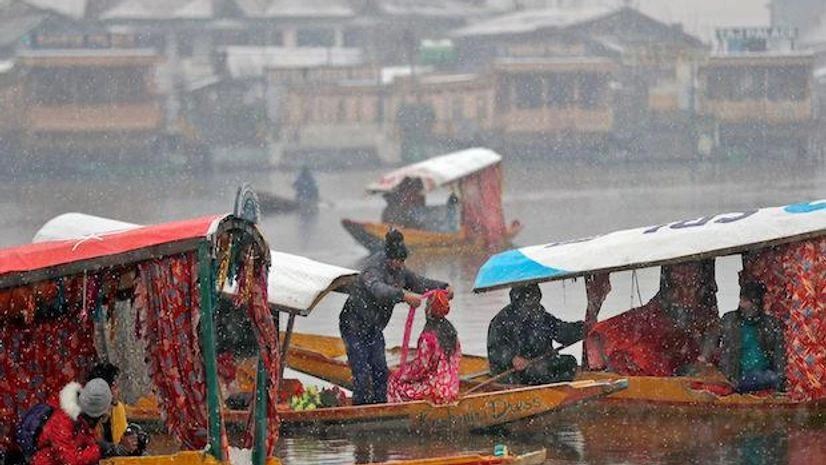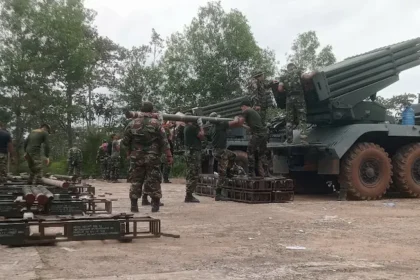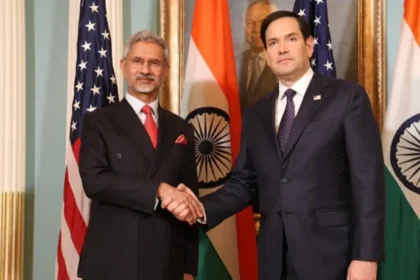J&K’s New Rehabilitation Policy for Terror Victims Excludes “Collateral Damage” Families
Srinagar: When a new policy – aimed at rehabilitating families affected by terrorism since 1989 – was rolled out by the Jammu and Kashmir administration in July this year, Bilal Ramzan was swamped with phone calls from relatives and friends.
“I had to explain to them that the policy doesn’t cover our family. We are the victims of the state,” Ramzan, a Srinagar-based software engineer, said.
On May 31, 1996, Mohammad Ramzan Bhat, Bilal’s father, was picked from his retail store in Srinagar’s Khanyar locality by a group of local police personnel, dubbed as a militant and later killed in custody – a petition in the J&K high court by Bhat’s wife Jameela Begum alleged.
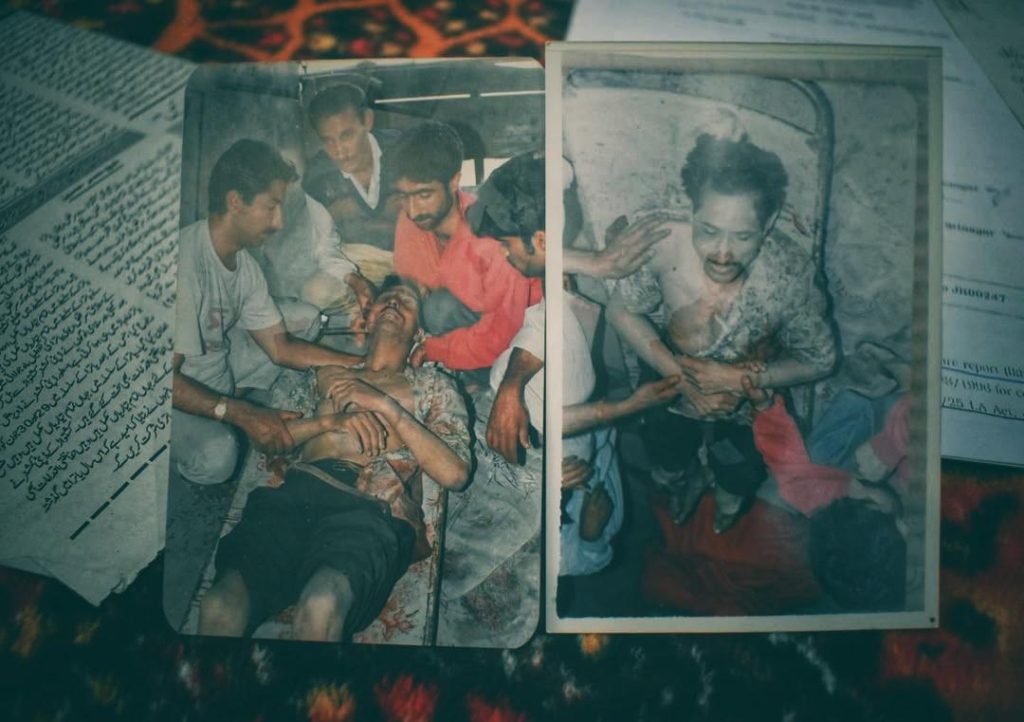
An official probe found that Bhat had no connection with militancy. His body, which was found abandoned near a water stream the next day, bore torture marks instead of a ‘firearm injury’ which the police claimed was responsible for his death.
More than 29 years later, the J&K high court last year rapped the investigators for acting “callously” while directing the government to change the investigating officer of the case.
Even though the allegations against Bhat have started to crumble in the court of law, the new policy, announced by lieutenant governor Manoj Sinha, doesn’t extend to his family and hundreds of others like them who have accused security forces of torturing or killing their loved ones.
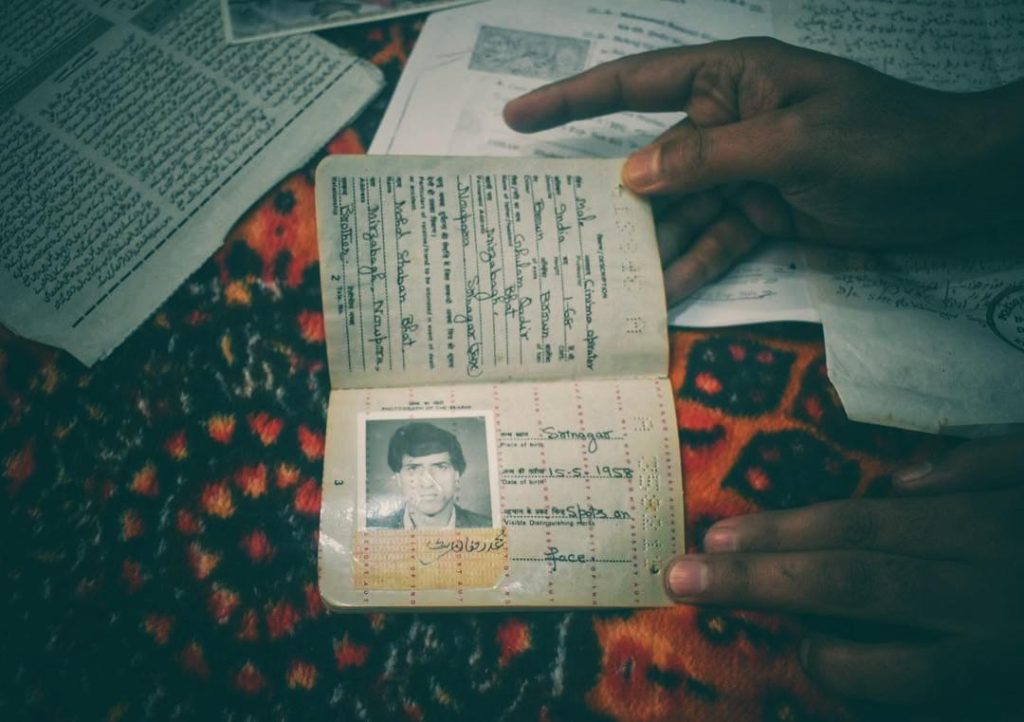
Extrajudicial killings and torture in J&K
According to a 2022 report by the Union home ministry, more than 41,000 people lost their lives between 1989 and 2020 in J&K in insurgency-related incidents, of which 14,091 were civilians.
Human rights groups put the number of civilian casualties much higher. While militants have indeed silenced many civilians in J&K after dubbing them as ‘Indian agents’ and ‘collaborators’ over the years, security forces have also been found to be involved in committing atrocities on civilians.
Global human rights watchdog Amnesty International and Jammu Kashmir Coalition of Civil Society have documented hundreds of individual cases of civilian killings by security forces since 1989.
In March 2021, the United Nations special rapporteurs asked India to provide details on allegations of arbitrary detention, extrajudicial killings and disappearances in Jammu and Kashmir.
A 2024 paper titled ‘State’s Role in Human Rights Violations in Jammu and Kashmir’ in the Indian Journal of Social Studies and Humanities notes that there have been “systemic patterns of violations committed by state actors, including security forces”.
The study identified Kashmir’s political unrest, militarisation and “historical tensions” as “contributing factors” which it said “perpetuate a cycle of violence and oppression”.
In 2023, three civilians were tortured to death in the custody of the army in Topa Pir village of Poonch district. In 2020, three tribal men from Rajouri district were killed in a fake encounter and passed off as militants.
In both the cases, the government announced jobs for the family members of the deceased.
Sheikh Showkat Hussain, a Srinagar-based human rights and international law expert, said that the Geneva Conventions and the Hague Conventions spell out the laws of international and non-international conflicts like the ones Jammu and Kashmir has experienced since the early 1990s.
Hussain said that the international laws provide that a nation state treats even an enemy soldier and cares for them in the same way as the state would for its own once they lose the capacity to fight.
“This is not to mention the responsibility of the state towards civilian victims who are killed in conflict by the state actors,” Hussain, former head and dean of the School of Legal Studies, Central University of Kashmir, said.
Under the new policy, the administration has opened a helpline for families victimised by terrorists, who have been awaiting justice for decades as successive governments allegedly refused to rehabilitate them. However, the state has left out families who are victims of security forces’ excesses from the ambit of this policy.
“The policy defies all of these principles of humanitarian assistance and obligations of a nation state,” Hussain said.
Idea of rehabilitation is not new
The idea to rehabilitate the victims of violence in Jammu and Kashmir is not new.
In 1994, the government came out with a framework under SRO-43 for providing jobs to the family members of civilians who died in “militancy-related action”. “The policy benefitted the families of many civilians who died due to militancy, regardless of the affiliation of their perpetrators,” said an official, wishing to remain anonymous.
However, the new policy, while providing much-need relief to terror victims, excludes another section of victims. The absence of a rehabilitation mechanism for these families could perpetuate a sense of alienation and victimhood in the South Asian region bordering China and Pakistan.
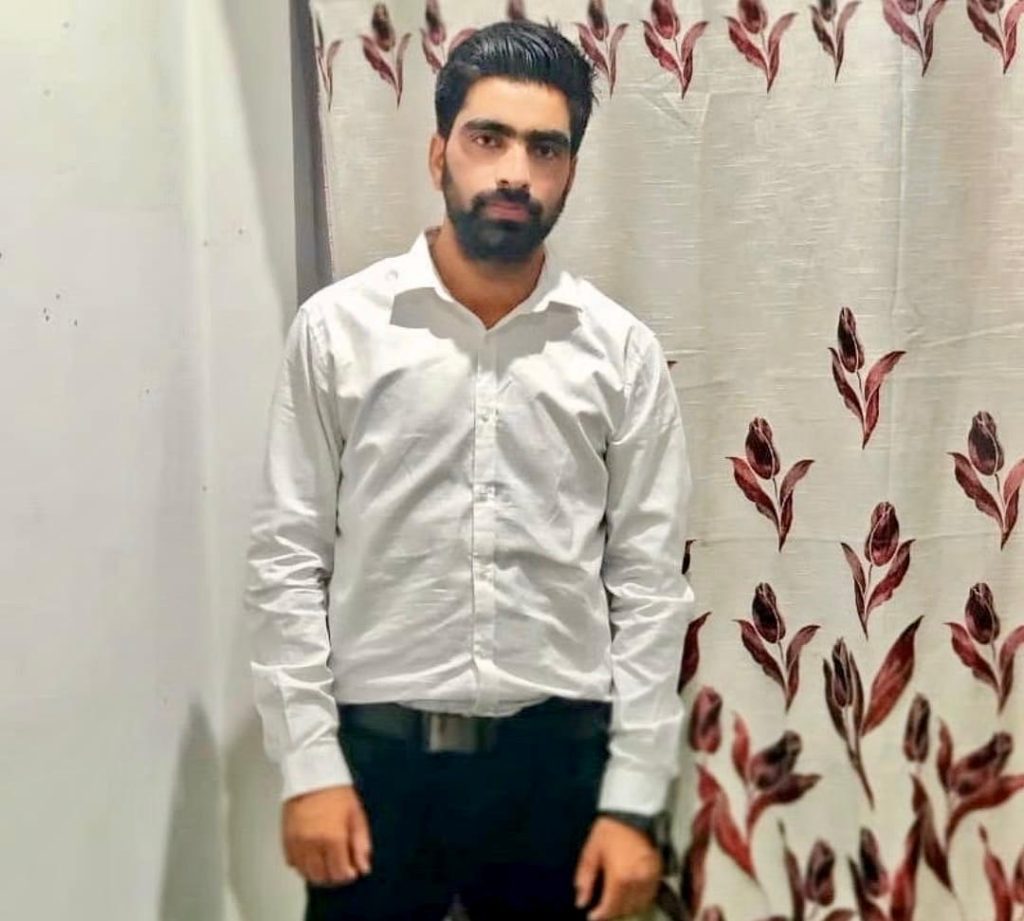
On February 5 this year, Waseem Ahmad Mir, 27, a driver, who was on the way to Srinagar in his truck, allegedly jumped a security checkpoint, prompting a chase in which the Indian army said that its soldiers opened fire “at the (truck’s) tyres”.
Doctors at the hospital where Mir, the lone breadwinner of the family, succumbed to his injuries, said that he died due to a bullet wound. For more than six months, his family has been running from pillar to post for justice.
“A local official prepared our case (under SRO-43) for approval (of compensation) but the government returned the file saying that the cause of death has not been written on it,” Irfan Ahmad, Waseem’s younger brother, said.
“By excluding us from the policy, the government is denying us justice. Even if we go by the army’s version, my brother was killed mistakenly and no amount of compensation can bring him back. But if there has been a mistake, the government should acknowledge and rectify it,” he added.
Inclusive rehabilitation
Welcoming the new policy, People’s Democratic Party legislator Waheed Para also warned against leaving out these families who have become victims of security forces’ “mistakes” since the insurgency broke out in J&K.
“Statesmanship demands recognising all victims of violence – whether harmed by militants, non-state actors or by the state itself. Families broken by mistakes of forces remain unseen and unhealed. Not every person killed in such incidents was anti-national. If rehabilitation is selective, where should these victims go? Inclusive rehabilitation is the only road to genuine integration,” he said in a post on X.
While announcing the policy on July 13, Sinha promised a gathering in north Kashmir’s Baramulla that his administration will rehabilitate the families of terrorism victims. So far, nearly 200 families have been provided government jobs.
However, political leaders and legal experts argue that the new policy will remain controversial unless the government holistically addresses the grievances of all the victims.
Ramzan said, “The government will gain the trust of people if cases such as ours are investigated fairly. It will send a message that the government is not partial and it is serious about addressing the wrongdoings whosoever is involved. Right now they are opening the door of justice for one side. They should open it for the other side also”.
Questioning the new policy, a senior PDP leader said that it appears to be aimed at creating a “vested interest as a bulwark to popular sentiment” in Jammu and Kashmir.
“They [New Delhi] are trying to repeat what has historically failed in Kashmir for 80 years. They did it in a negative way by exiling Muslim Conference (now National Conference) adherents (to Pakistan occupied Jammu and Kashmir) post 1948. Later, they gave route permits and forest leases under the government of (then J&K prime minister) Bakshi Ghulam Mohammad. Then they created Ikhwan (civilian militia) but it all crumbled when the crunch came,” the leader said.
Senior advocate Sheikh Shakeel Ahmed referred to the recent judgement of the Supreme Court that awarded Rs 50 lakh in compensation to Khursheed Ahmad Chohan, a police constable who was brutally tortured in custody after his detention on February 20, 2023.
On court orders, the CBI has arrested a deputy superintendent of police Aijaz Ahmad Naiko and sub-inspector Riyaz Ahmad, who were among the six policemen who tortured Chohan.
“Imagine if Chohan had died due to torture. In that case, would the new policy not extend to him?” Ahmed asked, “Would he not get compensation or a job? Chohan’s family had the courage and resources to take the case all the way up to the Supreme Court. But there are other innocents who were killed and whose families can’t afford legal battles. What will they do? How will they get justice?”
“There have been instances when security forces have killed civilians in Kashmir for perks and promotions,” Bhat said. “The government should acknowledge all the wrongs. As guardians of the state, they have a responsibility towards the citizens and a chance to rectify these mistakes. The policy should not be a one-sided affair. Mistakes committed by both sides need to be corrected”.
Also Read: How Nigerians Remade “De Rica” Tomato Paste Into a Market Icon


